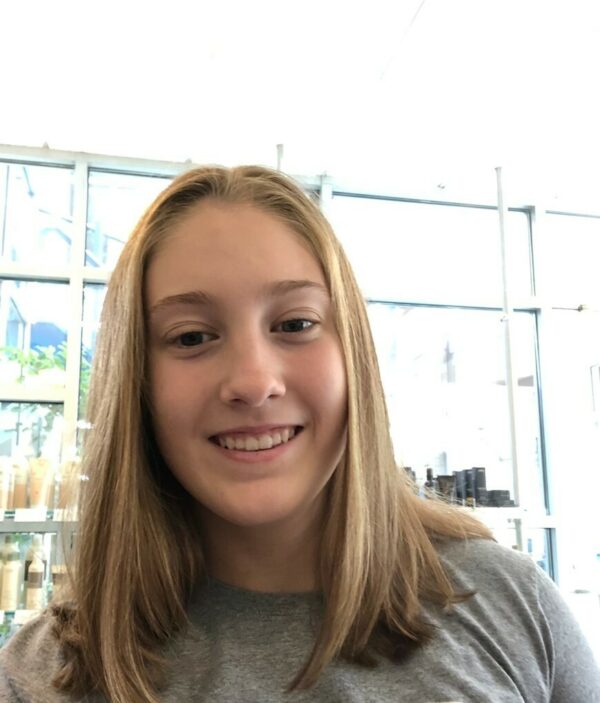5 Questions for a Future Neuroscientist Learning French & German

We’re asking students, recent grads, teachers, and counselors five questions on how languages play a role in shaping personal and professional success…
Meet Caroline—a Massachusetts high school senior aspiring to a career in the field of neuroscience.
1. What was the first moment you remember connecting with language? When did you start learning French, and what motivated you to choose the language?
My sister was diagnosed with a hearing loss just prior to my birth, so my parents were making an effort to use a lot of signs around the house when I was a baby. Due to this, I was using simple signs before I could even speak. I think this ability to communicate my needs from a younger age taught me the importance of language and how powerful communication truly is.
I started learning French in sixth grade, about seven years ago. I was motivated to choose the language because growing up, I had a pen pal in Haiti whose first language was Haitian Creole, but spoke French in school. We had a significant communication barrier, so going into middle school, I wanted to overcome this and learn more about the French language and Francophone culture.
2. What’s the best part about language class? How is it different from your other classes? What would you say has most surprised you about learning another language?
Language classes are different because for the most part, my other subjects restart every year; biology switches to chemistry, and world history switches to United States history. However, language classes are always a continuation. This aspect tends to foster a stronger community among students.
Additionally, one of the best parts of language class is that because the topic itself is so broad, there is a lot more creative freedom with what we learn about. I have always liked this because there is room to discuss relevant events in the curriculum.
Last year, one of the classroom discussions that my French teacher facilitated was about the Black Lives Matter movement’s impact in France. It was inspiring to hear how the actions of brave protesters were spreading globally and were relevant to the Francophone world.
I was surprised by how much I have learned about my native language through learning French and German. Because I am a native speaker of English, I don’t have to put as much conscious effort into understanding the grammar; for the most part, it just sounds right and I can’t explain the rules. However, through learning French and German, there are parallels between their grammar and English grammar, so I have learned a surprising amount of rules that have taught me about why the English rules are the way they are.
3. Do you participate in any language or cultural activities outside of the traditional classroom?
Yes, I have engaged with the French and German language clubs at my school. I am also participating in a French exchange to Switzerland with my high school. In February, I traveled and stayed with a host family for two weeks, and then my partner came to the United States in April and stayed with me. I was really excited to challenge my French language skills through this opportunity.
4. Have you got a favorite word or expression in French—what is it, what does it mean, and why is it special?
I always like finding neat expressions in French, especially the ones that describe feelings that cannot be accurately expressed in my native language, English. One of the ones that I really like is, Ce n’est pas la mer à boire—which directly translates to something along the lines of, “It is not as if you have to drink the sea.” I always thought this was a funny way to describe a situation that isn’t a big deal.
5. Any advice or tips for fellow learners?
There will be times when progress is visible and others when it's not. Persevere through the times when language may feel more like a struggle than a challenge.
BONUS QUESTION
Complete this thought: “Learning another language means…”
Learning another language means gaining another perspective on the world.
What's next for Caroline?
At university, I want to pursue either linguistics or Francophone studies alongside neuroscience. I have always found parallels between these two subjects, which although very different have a surprising amount of similarities. Particularly, I like how each can be broken down neatly into their counterparts; for language, that is the grammar and semantics, while for neuroscience, it is the lobes and neurons among other things.
Check out our Connect with French, Connect with German, and Language Programs & Funding pages to explore language scholarships, university programs, testimonials, and more! And, as always, visit @LangConnectsFdn on social media to share your story with us.
